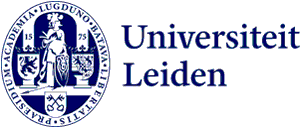Interview with Vincent Mul on collaboration with The Hague Court of Appeal
Vincent Mul is deputy president on the board of The Hague Court of Appeal. Together with Jan Crijns, Professor of Criminal Law and Criminal Procedure, he stood at the cradle of the collaboration between Leiden Law School and The Hague Court of Appeal. ‘By joining forces, we all benefit.’
What exactly is your position at the Court?
‘I’m a member of the board. At the head of every court and court of appeal in the Netherlands is a three-member board with two judges and one non-judge. One of the two judges is the president, the other is the deputy president. That’s me. Together, the three of us are responsible for coordinating all work carried out at the Court: We keep tabs on the timeliness and consistency of the court rulings, but we also keep an eye out for the people involved.’

How did the collaboration with Leiden University come about?
‘I worked at Erasmus University in Rotterdam for quite some time, where I also studied. That university worked closely with the Rotterdam Court. About eighteen months ago, I came to work for the Court in The Hague and I noticed that although there was some collaboration with Radboud University in Nijmegen, it was mostly on an ad hoc basis. I thought: how nice, but how inconveniently far away. And why? We have a very good university close by that also has a campus here in the city. At the time, I already knew Jan Crijns, who works both at Leiden University and for the Court as a deputy justice. So we put our heads together to come up with something great.’
So, that’s how the collaboration came about with Leiden University?
‘Exactly. Currently, we’re mainly focussed on working with the law faculty, but we’re also cautiously considering possible future interdisciplinary collaborations, for instance, in the area of social sciences.’
What do you hope to achieve with this collaboration?
‘To really come together in relation to the content of our work. At both the university and Court, we’re concerned with the developments and the position of law within society. We’re both focussed on the impact of law on the city and the people. But apart from that, we can also mutually benefit from this collaboration. We can offer internships and give lectures, for example, and the university can conduct research and provide us with advice.’
Can you explain more about ‘the impact of law on the people’?
‘The collaboration is primarily intended for staff of the Court and the university, but at the same time we’re also trying to make a difference for citizens in The Hague. We believe it’s important that we’re accessible to people in the neighbourhood. The Week of the Judiciary is in November. In that week, the Court building will be open to the public. And later this year, we’d like to co-organise another event with the university for the benefit of the city. The Hague has plenty of ongoing issues that affect the law.’
Why do we need this collaboration?
‘Because we’re both striving for social engagement, for being more part of the community, for more diversity and inclusiveness, for continuous improvement. I assume that the university is as convinced as the Court that you can only move forward by also continuing to focus on that. That you really have to look further, at what’s happening in the city, what’s happening in society, what’s happening among young people, and also what’s happening in other cultures. That we don't just look inwards and think: well, things are going just fine the way they are.'
And when do you think the collaboration can be considered a success?
‘That’s still hard to say. Next March, we’ll have been running for one year. It’ll be too early to take stock and rate ourselves then. I think it’s already been a success in that we’ve initiated this agreement on collaboration and we’re now actually developing activities. I think it would be great if we’re able to connect with a large chunk of the city with the event we’re organising. But actually, I think every activity, moot court, or symposium that takes place as a result of this collaboration will be a “win”, and enough reason to say: it’s a success.’
